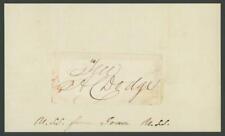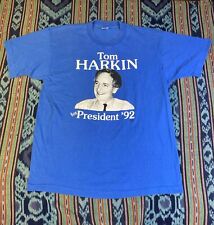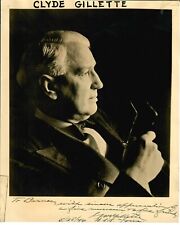"Iowa Senator" Guy Gillette Hand Signed Vintage B&W Photo For Sale

When you click on links to various merchants on this site and make a purchase, this can result in this site earning a commission. Affiliate programs and affiliations include, but are not limited to, the eBay Partner Network.
"Iowa Senator" Guy Gillette Hand Signed Vintage B&W Photo:
$139.99
Up for sale "Iowa Senator" Guy Gillette Hand Signed Vintage B&W Photo.
ES-4565
Guy Mark Gillette (February 3, 1879 – March 3, 1973) was a Democratic U.S. Representative and Senator from Iowa. In the U.S. Senate, Gillette was elected, re-elected, defeated, elected again, and defeated again. Born in Cherokee, Iowa, he attended public school and graduated from Drake University Law School in Des Moines in 1900. He was admitted to the bar in 1900 and commenced practice in Cherokee. During the Spanish–American War, he served as a sergeant in the Fifty-second Iowa Regiment in the United States Army, but never saw combat. He volunteered to fight against the British in Africa in the Boer War, but was turned down. Returning to Iowa, he engaged in agricultural pursuits and was the city attorney of Cherokee in 1906–1907. He became the prosecuting attorney of Cherokee County from 1907 to 1909 and a member of the Iowa State Senate from 1912 to 1916. During the First World War, he served as a captain in the United States Army. He ran unsuccessfully for Iowa State Auditor in 1918, and returned to Cherokee to farm. In 1932, in the Roosevelt landslide, he was elected as a Democrat to represent Iowa's 9th congressional district, in heavily Republican northwest Iowa. He was re-elected in 1934, and served nearly all of that term. He resigned upon his election to the United States Senate on November 3, 1936 to serve out the remainder of the term of Senator Richard Louis Murphy, who had died in an auto accident. Nearly two years remained in Murphy's term, which would end January 3, 1939. Although he generally supported the New Deal, he opposed the new wage and hours bill, a new farm bill, and aspects of the Social Security system. In 1938 the Roosevelt Administration targeted Gillette for replacement because of Gillette's vote against Roosevelt's plan to expand the Supreme Court and other positions. He nevertheless defeated Roosevelt's choice for the Democratic nomination, Congressman Otha D. Wearin, and was narrowly elected to his first full Senate term. During that term, his conflicts with the Roosevelt Administration expanded, on topics as diverse as the terms of the Neutrality Act,[5] Roosevelt's pursuit of third and fourth terms, and choices for judgeships. After the Japanese attack on Pearl Harbor (where, coincidentally, Gillette's brother Captain Claude Gillette managed the Navy yard), Gillette became "more of an internationalist." Nevertheless, he used his chairmanship on a Senate subcommittee to aggressively challenge the Roosevelt Administration's failure to prepare for the prospect of a Japanese seizure of the source of the nation's rubber imports by developing synthetic farm-based alternatives. In April 1943 a confidential analysis by British scholar Isaiah Berlin of the Senate Foreign Relations Committee for the British Foreign Office succinctly characterized Gillette:[He] resembles Van Nuys in that he is a typical Mid-Western Senator with a moderately steady Isolationist voting record, although he is not an articulate opponent of the Administration's policy. Unlike Van Nuys, he is a supporter of reciprocal trade pacts but shares his suspicion of the President. A simple, confused, but very honest Presbyterian of considerable character, he views the corn interest, which he represents, with an almost religious devotion. He leads the Senate Lobby interested in producing synthetic rubber out of corn, and coming from the Republican corn belt, is virtually a Republican in sentiment and conduct. He is not at all anti-British, but as isolationist as his general environment. His speeches in Congress take the form of thinking aloud. On foreign policy he is not a bigoted anti-Rooseveltite but is exceedingly uncertain. Like several others who had opposed Roosevelt's efforts to aid Great Britain before Pearl Harbor but faced wartime elections, Gillette lost his next race, in 1944, to Iowa Governor and Republican Bourke B. Hickenlooper.
Related Items:
AUGUSTUS C. DODGE (1812-1883) autograph cut | Iowa Senator - Signed
$14.99
Vintage Tom Harkin For President ‘92 T-Shirt Sz XL Single Stitch Iowa Senator
$99.99
"Iowa Senator" Guy Gillette Hand Signed Vintage B&W Photo
$139.99




